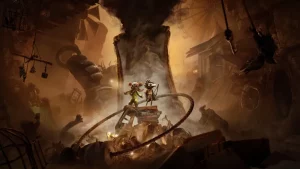Google’s latest generative AI experiment, Instrument Playground, empowers users to craft music “inspired by” a diverse array of over 100 instruments from around the globe. To begin, users input a simple prompt featuring the name of a musical instrument, optionally preceded by adjectives such as “upbeat,” “strange,” or “gloomy.” Subsequently, the tool generates a 20-second audio clip, serving as a creative starting point for composing music. These compositions often take on unconventional or abstract qualities, and may or may not incorporate the sounds of the specified instrument.
Designed by Simon Doury, an Artist in Residence at Google Arts & Culture Lab, Instrument Playground leverages Google’s MusicLM, a text-to-AI tool introduced to the public in May.
Instrument Playground encourages users to “select one of over 100 instruments from around the world that you’d like to play.” It suggests instruments less familiar to Americans, such as the veena from India, dizi from China, or mbria from Zimbabwe. Additionally, by adding adjectives to the instrument prompt, users can indicate preferred styles like “moody,” “happy,” or “romantic.”
The experiment operates with a less literal approach than anticipated. For instance, inputting “angry tuba” doesn’t yield the expected aggressive brass solo; instead, it resembles a synthesized pipe organ with tuba aspirations. Similarly, “strange didgeridoo” produces an ominous section akin to a Hans Zimmer score. The outcomes appear as abstract compositions with layered sounds that capture the essence, rather than the precise sound, of the given prompt.
Some adjectives are inexplicably rejected; for instance, attempts to use “quirky” or “psychedelic” result in an error pop-up, indicating that prompts referencing specific artists are not permitted.
Upon generating a clip as a starting point, users can manipulate different aspects of the composition by choosing from “Ambient,” “Beat,” and “Pitch,” transforming it into a more personalized creation. For those inclined to add more instruments or explore the sounds prompted by instrument-based queries, an advanced mode unveils a sequencer, allowing users to layer and loop up to four tracks for their unique musical creation. Ultimately, once satisfied with the result, users can download a .wav file of their track.
Google has shared a holiday-themed example to inspire users to get started. If this piques your interest, you can visit Instrument Playground and log in with your Google account to commence your musical composition journey.




